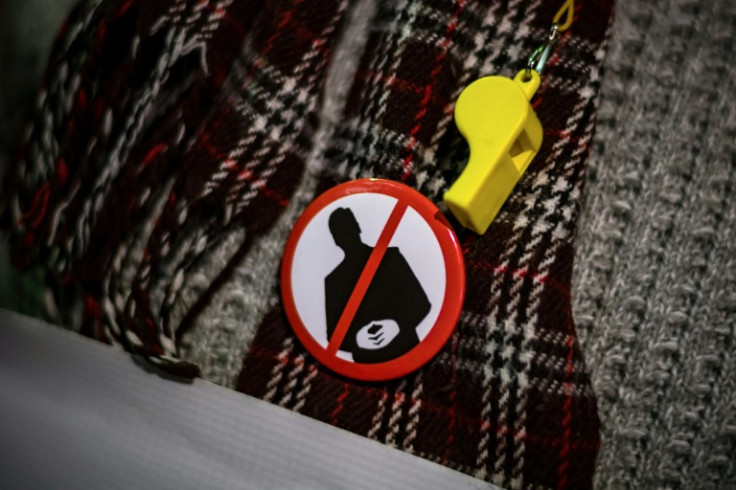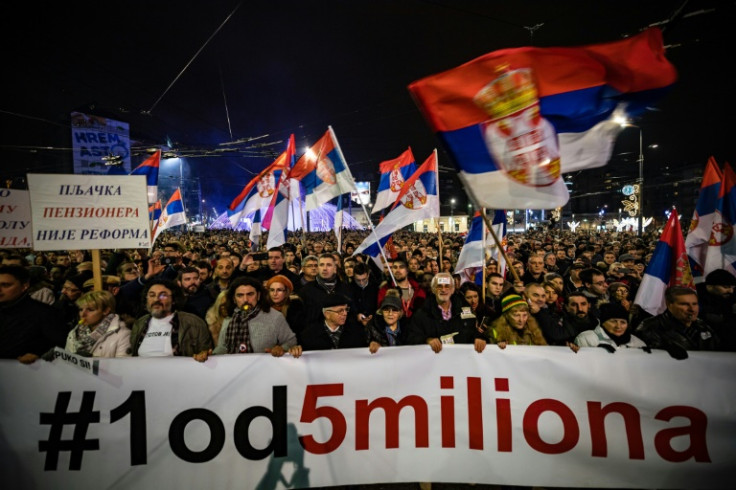
Smeared in the press, intimidated on the streets, their homes hit by strange burglaries and fires... Life is not easy for Serbia's fledging opposition.
For Djordje Miketic, who is running in the capital Belgrade in Sunday's elections, the cost of standing against strongman president Aleksandar Vucic's ruling Serbian Progressive Party (SNS) has been high.
Just weeks before Sunday's local and parliamentary elections, a sex tape of Miketic was leaked on social media and later broadcast on a pro-government television channel.
It came after Vucic had called him "a human disgrace".
"He won't ask me why I'm saying this," Vucic hinted darkly shortly before the video was leaked, "because he knows what I know."
Miketic said the video probably came from a computer stolen from his apartment more than a year ago.
"In recent months, I have reported numerous violations of the law, including corruption," Miketic told AFP, saying almost every opposition figure in Serbia has been dragged through the "media mud".
Election observers say the episode matches a clear pattern of intimidation common in Serbian politics.
During a single 72-hour period last month, five incidents -- involving threats or destruction of property -- were recorded targeting opposition candidates, according to the Belgrade-based Centre for Research, Transparency and Accountability (CRTA).
"The impression is that violence and threats intensify as the campaign progresses," said a report published by the watchdog.
Slavisa Momcilovic, a leading light of the Democratic Party in the southern town of Prokuplje, suspects that a fire at his farm last month was likely linked to his opposition to the government.
The blaze destroyed agricultural equipment worth tens of thousands of euros, with police offering no leads about the possible culprits.
"We are exposed to pressure, blackmail, and threats," he told AFP, saying the front door of his party's offices was also vandalised.
Opposition leader Borko Stefanovic is deeply familiar with the pressure that comes with running against the establishment.
In 2018, he was violently assaulted by a group of men, with the bloody beating sparking huge street demonstrations against Vucic's government.
"We live in a country of violence, corruption and terrible crime," said Stefanovic, who is now a member of the coalition of opposition parties running under the Serbia Against Violence banner.
"The climate of violence, fear and pressure on voters is the result of the new reunion of the old political family of Seselj, Vucic and Dacic," he added, referring to the president's ultra-nationalist allies.
Ahead of the polls, a delegation from the Parliamentary Assembly of the Council of Europe expressed concern about "unprecedented levels... of incitement to fear and attacks on the opposition".
To add to the opposition's woes, Vucic and his SNS allies virtually monopolise government-backed media outlets, with the group taking up around 70 percent of news airtime on national channels, according to a study by the Bureau for Social Research.
Serbian authorities, however, have largely dismissed the accusations of skullduggery, saying there has been no major incidents or controversies.
"Nowhere did we have a single conflict, which happens in much more developed countries with a longer democratic tradition than ours," said Vucic in a televised address this month.
"I think this is a good thing."








